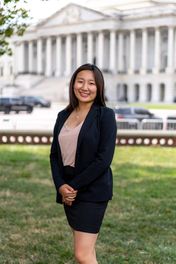Discrimination, control, and witchcraft.
What if your community hunted you because they believed your skin color meant you had magical powers? For most, that might sound like the beginning of a science fiction novel. However, this is a reality for people with albinism in certain countries in Africa. Albinos are people born without pigmentation in their skin. Due to their sandy colored hair, chalk-white skin, and light brown or blue eyes, their lack of melanin and resulting sensitivity to sunlight increase their risk of skin cancer. It is rare in the western world; however, it is quite common due to a recessive gene mainly found in sub-Saharan Africa. Men, women, and children with albinism deal with discrimination on a daily basis, but now they face much more serious threats as a result of the misconceptions in their communities.
In countries like Tanzania, Botswana, and Malawi, there are substantial numbers of albinos within the population. Tanzania has roughly 170,000 albinos (far higher than the global average), but scientists are still not quite sure why. A 2006 study published that nearly 1 out of 1,400 people in Tanzania had albinism. Unfortunately, due to a lack of proper education on this genetic condition, most citizens in these African countries view albinos as “ghosts” rather than people. According to Peter Ash, founder of Under the Same Sun, an organization dedicated to raising awareness surrounding albinos, discrimination begins with the idea that Albinos are not viewed as equivalent to humans. This misconception has incentivized the killing of albinos: their bones and blood are used in rituals by witch doctors to bring prosperity to individuals, and lacking formal education fails to correct this communal belief. Violent acts against Albinos became widely noticed nationally and internationally in 2009; however, the number of violent incidents has risen since then.
A key factor of this increase is the reliance on witch doctors, who encourage citizens to hunt albinos. African witch doctors are individuals who traditionally have performed physical and spiritual healing on people in their communities. Currently, in Tanzania alone, there are an estimated 75,000 witch doctors. Although this cultural practice of natural healing has existed for centuries, the hunting of albinos has recently been encouraged by a small number of witch doctors, mainly from rural areas. This in large part results from high demand in the illegal market for albino organs. In places like Mozambique, the average price for albino body parts can range from US$4,000 to $75,000. Due to widespread illegal exploitation, the Tanzanian government banned witchcraft in 2015.
However, this reality persists. Since 2000 there have been over 90 albinos killed in Tanzania alone, with many more injured or maimed. The legal systems in these countries are unable to prosecute those responsible, leaving a large gap of injustice for the family members and survivors of albinism-motivated attacks.
This examination of crimes against Albinism in Africa is not to perpetuate the idea of “African backwardness.” Many countries still follow spiritual healing and mystic beliefs of shamans, voodoo, and psychics. Rather, this issue should warn the international community of the dangers that arise when educational systems fail to address social and political differences. Although sub-Saharan Africa’s discrimination against this white-skinned demographic has taken a dangerous turn, hate, violence, and crime against people of different colors has existed in the international community for a long time. This problem calls upon the citizens within these countries to address the problems of race relations in Africa.
Going forward, it is imperative that the international community focuses on healing, educating, and continuing to raise awareness on issues like the hunting of Albinos to never forget nor neglect those who suffer as a result of ignorance.





